“National Muslim body is not a priority”
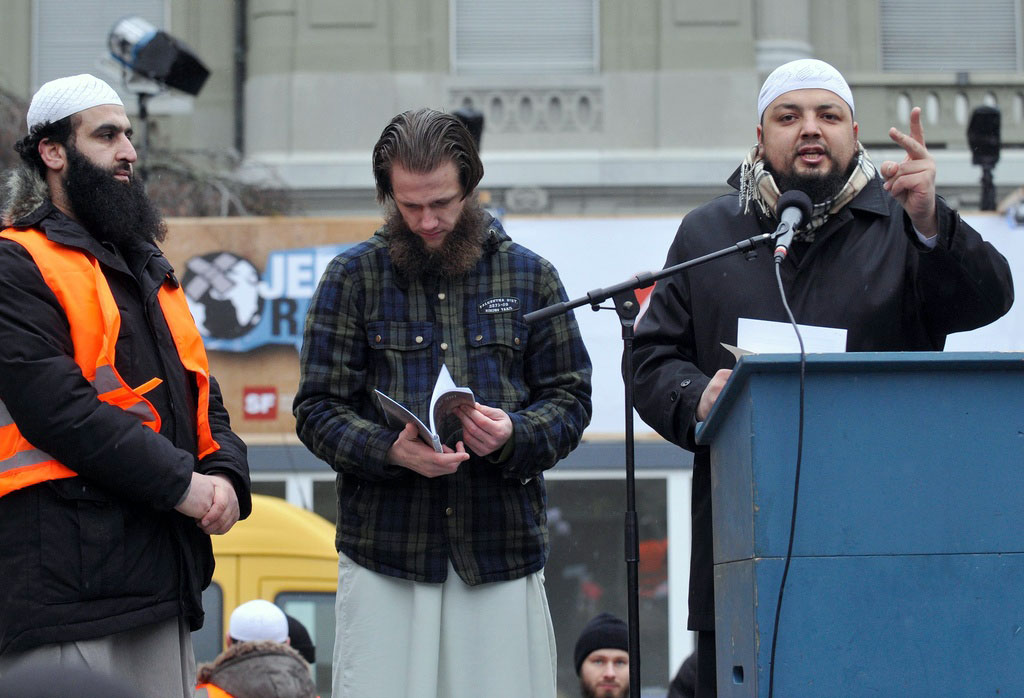
Better ties between Muslims and the Swiss population should be a priority, and not the creation of a national Muslim umbrella organisation, says an Islamic expert.
The idea of a single body representing the country’s diverse Muslim groups is one of a number of hot topics doing the rounds in Switzerland, which is still reeling from the surprise anti-minaret vote two weeks ago.
For Stéphane Lathion, head of a research group on Islam in Switzerland at Lausanne University, focusing on a national Muslim umbrella organisation right now would be like “putting the cart before the horse”.
“The priority is building ties on a daily basis between Muslim associations and the Swiss population at the local level; not just annual open-door events or inter-religious dialogue, but getting people to talk together more and for associations to take position on specific Muslim issues as well as on social issues regarding the whole of society,” Lathion told swissinfo.ch.
Hafid Ouardiri, general secretary of the Geneva-based interfaith foundation Entre-Connaissance, echoed this sentiment.
He felt a Muslim umbrella organisation in Switzerland “was a dream shared by many”, but said “you can’t put in place an umbrella organisation without working on the grassroots and communal ties in order to become credible”.
On Sunday Hisham Maizar, president of the Federation of Islamic Organisations in Switzerland, one of the largest groups, called for the creation of a single umbrella organisation in an interview in the French-language Le Matin Dimanche newspaper.
“We would all benefit by being united at the national level,” he said, but admitted that it was a “slow and difficult” ongoing process.
The alpine country of nearly seven million people is home to 350,000-400,000 Muslims, mainly from Bosnia, Kosovo and Turkey, but also from North Africa and the Middle East.
They are represented by a myriad of diverse organisations, from secular to conservative, which are mostly present at the cantonal level. But uneasiness about exactly what they all do – providing Arabic or Qur’an lessons, or other things – needs to be overcome via greater transparency, said Lathion.
Post-vote talks
In the absence of a national body, Ouardiri and Maizar will be two of a handful of Muslim representatives taking part in post-vote talks with Justice Minister Eveline Widmer-Schlumpf on December 22. The groups already had a discussion in September about integration.
In the wake of the minaret ban, the former spokesman for the Geneva mosque felt both the Swiss authorities and the Muslim community now had a “huge task” before them.
“The authorities are aware of the delays that have occurred,” Ouardiri said. “We kept drawing their attention to integration problems, but we were forced to focus on security issues.”
Ouardiri said whether they liked it or not, both groups now faced an emergency situation that would last for some time and would be difficult to manage.
“We have to retake control of the debate, reassure people and move forward; we have to live together,” he said.
Peaceful rally
On Saturday a peaceful rally in front of parliament in Bern against the “false perception of Islam in Switzerland” attracted around 700 people. The rally was not endorsed by any of Switzerland’s main Muslim groups.
“It’s not the best way to reach those who think differently or to reduce their fears and prejudices,” Taner Hatipoglu, president of the Zurich Association of Islamic Organisations, told Swiss television.
But Melanie Muhaxheri, president of the Organisation of Muslim Women in Switzerland, who was present at the rally, disagreed.
“As a Muslim I intend to stand up for my rights,” she said. “First minarets, then talk about burkas. What next?”
“I am a Swiss citizen and this is my home, so I want the same religious freedoms as Christians, Jews and Buddhists.”
Muhaxheri felt an umbrella group was a sensible but difficult idea to achieve: “They have always talked about it, but nobody could ever agree.”
For Lathion the next steps are clear: “Muslims need to continue their explanatory work, to try to explain to people that their fears are ill-founded and that they are Swiss citizens and not dangerous.”
“And Swiss politicians need to make a public mea culpa, admitting they did not do their work correctly.”
But he is concerned as this hasn’t happened over the past two weeks.
“I thought that after the salutary vote Swiss people would wake up and we would finally have a real debate on the issue, but in fact we are witnessing extremely dangerous populist one-upmanship by pseudo-centrist parties.”
Simon Bradley, swissinfo.ch
Switzerland is the first European country to forbid the construction of minarets.
On November 29, 57.5% of votes cast were in favour of a people’s initiative entitled quite simply: Against the construction of minarets.
Several plans for building minarets in the German-speaking part of Switzerland were the catalyst for the initiative. Local residents collected signatures against the planned towers.
They were supported by the rightwing Swiss People’s Party and the Federal Democratic Union, which coordinated efforts.
The Muslim community accounts for about 4.5% of the Swiss population.
There are about 200 mosques and prayer rooms in Switzerland, but only four have a minaret.

In compliance with the JTI standards
More: SWI swissinfo.ch certified by the Journalism Trust Initiative

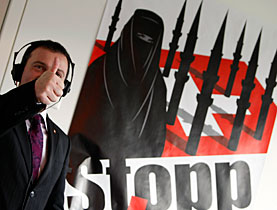
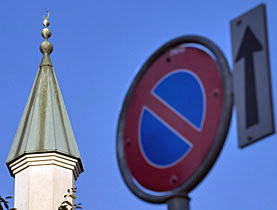
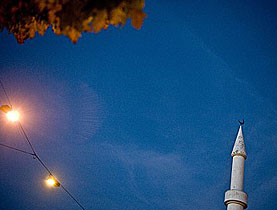
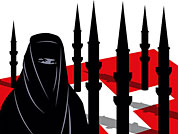
You can find an overview of ongoing debates with our journalists here . Please join us!
If you want to start a conversation about a topic raised in this article or want to report factual errors, email us at english@swissinfo.ch.